- Home
- Heather Graham
Captive Page 35
Captive Read online
Page 35
“What, are you an injun lover, too, Thomason?” Teela was sure it was that vile Evans speaking again.
“There is right and wrong, my friends. And I have seen right and wrong on both sides of this affair. You tell me, sir, would it be better if young Miss Warren was today a dead woman yet a decent corpse? Her life was saved, quite simply. That is the story, the way I will print it.”
“Ah, but it isn’t what Warren believes. The half-breed McKenzie is one powerful buck, so rumor has it. Warren believes his daughter feels a fascination for this man. Perhaps he slaughtered the troops, yet she gave him promises of wicked pleasure if he should spare her!” Evans theorized. He would have spoken again when Teela heard something like a choking sound. And it was Jarrett’s voice she heard next.
“May I suggest, sir, that if you wish to discuss my brother in such slanderous terms, you do so far from my home. Otherwise, I might be the one to give you some very savage behavior to condemn within your text!”
“Mr. McKenzie, you’re hurting me—” Evans gasped out.
“Indeed. Get off my property before I kill you!”
Teela heard a door slam. A scurrying. And then … blessed quiet. She rolled over, heartsick, wondering how she could feel so exhausted when she had slept so deeply the night before.
There was a tapping on her door. She sat up, trying to straighten the damage she had done to her pinned hair by lying upon it. “Come in!”
It was Tara with a tea tray in her hands. She set it on the morning table by the window. “You did very well,” Tara assured her.
Teela sighed. “I heard them talking afterward. It didn’t really matter what I said. They all have their preconceived notions.”
“No, you spoke very well.” She paused reflectively, pouring the tea. “You were very good. Jarrett let his temper get the best of him. No matter, he’s been accused of everything in the world already. Come over here now. You must eat something.”
“Oh, Tara, thank you so much, but I’m just not hungry.”
Tara sighed, looking at her in perplexity. “Teela, you are actually losing weight.”
“Am I?”
“You must come eat.”
“But—”
“Oh, you little fool!” Tara cried at last in exasperation. “Don’t you want a healthy child?”
Teela felt a sudden surge of energy and bounded to her feet, staring at Tara. “What?”
“The most casual of observers will soon notice your condition, and yet you have not considered the possibility yourself!”
She had not. Oh, God. Sweet Jesus, she had not.
Why not?
She had been so busy. Men had been dying. She had patched them up. She had lain awake nights at Fort Deliverance, praying that she would not get word that James McKenzie, Running Bear, was dead. Praying that she would not find him maimed and dying on the operating table. And then …
“Teela?” she dimly heard Tara’s cry.
But that was all. She was spared any more of the initial shock and trauma of the revelation.
The room misted to shades of red and gray.
And she saw no more.
A strange period of peace and inactivity settled over Osceola and his warriors as the time passed before the agreed-upon date for the parley. James worried more and more about Osceola. The chief had days when he looked fit and well, and days when chills and fever seized him. He liked to talk during those periods about his boyhood, about the life he had spent, always fighting, so it had seemed.
“They think that I have waged a war against their people,” Osceola told him. “The whites—they think that I have wished to kill them all, as they have wished to rid the land of us. They are wrong. I fought and I killed just so that we could have our piece of this great land. I know what the white newspapers tell people. I know that there are those in the great cities who consider this a battle against a people they would rip from their heartland, their blood land. And there are those who say the whites have more right to this peninsula than we do, that we Seminoles are new here. Yes, I am Creek, yes, many of my brothers are what they call Creek. But we have come here now in waves for well over a hundred years. We have shed our blood here; we have fed the land here with it. I have always fought only to stay, only for our right to the land we have bled upon for our heritage. There are many among your father’s people I have called friend. Young John Graham, your brother, others in the military. If only they could make a treaty and keep it!”
James stared at the fire without replying. But Osceola smiled. “Many of them have said that I cannot keep a treaty. That I make promises, come for the white food and supplies, and then run again. Sometimes I have done so. I could not watch my children starve.”
James looked at him. “I am uneasy about this parley to come.”
“Why?”
He shrugged. “I don’t know. I feel it. Like we feel the footsteps of others when they are near. Like a scent on the wind. I fear for you.”
Osceola was quiet for several long seconds. “The parley will take place. I am resigned.”
* * *
The date came. Osceola, Coa Hadjo, many of the others, were dressed in their finery for the talks that would take place.
The army was coming to the Indians. In a copse not far from Fort Peyton, Osceola and his warriors raised a huge white flag above their camp.
James had dressed neither to suit his Indian heritage nor his white, but chose his usual dark breeches, cotton shirt, strip of red fabric around his head to keep his hair from his eyes.
He was on his way to find Osceola when he heard the cry of a bird.
One he had not expected. He answered in kind.
Jarrett stepped from the foliage but beckoned to him. “Follow me out some. The soldiers are coming here even as we speak.”
James quickly did as his brother bade him. He almost felt as if they were boys again, running wildly through the forests and marshes, learning, laughing. Jarrett had taught him to hunt, to fish. Through their mothers they had differed. Through their love of their land, they had forged a bond deeper than blood.
They were older now. Jarrett was gasping somewhat as he paused next to an old oak. “General Hernandez left St. Augustine early this morning for the parley. Jesup will not be with him; he is so nervous that he awaits the results at Fort Peyton. Altogether Hernandez will have a force of nearly two hundred and fifty well-armed men. James, this is not to be a talk. Jesup believes that Osceola has betrayed him again and again. He plans to capture him under a flag of truce. You shouldn’t be here. Teela has given a statement to the newspapers—”
“Teela is still in the territory?”
“She is safe, she lives with us, and Harrington has been the best of friends, escorting her about town so that they can be seen together. There is more about Teela that I must tell you, but pay heed to me about this first. Most men believe that you are the noble if half-savage negotiator you have been throughout the conflict, but there are those still eager to hang anyone associated with any attacks on whites.”
“Do they plan on hanging Osceola?” James asked.
“No, there is no such talk. The Indians are to be escorted to Fort Marion. You know, the old Castillo de San Marcos.” Even as Jarrett spoke, James became alarmingly aware of motion on the trails near them. He dragged Jarrett down low beside him as they watched the mounted men of Hernandez’s force riding by on the trail nearest them.
“Jarrett, I’ve got to go back.”
“You’ll be imprisoned with the others by association.”
“Perhaps. And perhaps I will speak for myself and clear my name before your military friends. Jarrett, all I know is that I must be with Osceola now. He—”
“He what?”
“I think he’s dying. I have to go. If I need you, I swear, I will send for you. If not, brother, I have to pave my own way in this world. You must get out of here before you are condemned as a traitor for coming to me!”
“Wait! I have to
tell you—”
The more horses that rode by, the more James worried. For his brother now, not himself. He turned, ready to run back the way he had come. “Go!” he commanded his brother, and disappeared back into the bush himself.
He ran harder than he had come. Too late. He slipped through the back of the copse even as the first of the military men entered the Indian camp with its high-flying white flag. There was nothing that he could do.
He stood back in uneasy silence, watching as the white soldiers came around them. General Hernandez was at the head of the delegation. As Jarrett had told him, General Jesup was not among the soldiers. James studied the uniforms of the men around Jesup. There were Florida mounted men with him, dragoons on foot.
Scents on the wind …
He suddenly knew that they were completely surrounded by white military, just as his brother had warned. There was nothing that he could say or do; any cry of alarm on his part now would bring all the white guns blazing against them before the Indians had a chance to raise their own weapons. He saw that Osceola seemed to be choking. He went forward with Coa Hadjo at his side. General Hernandez stepped forward with his black interpreter at his side. He greeted Osceola and Coa Hadjo with all courtesy, then said, “I thought there would be more of your number among you. Where are Alligator, Micanopy, Jumper, and Cloud?”
“Ill,” Coa Hadjo said. “Disease—the spotted disease, measles—has laid many of our people low.”
Hernandez saw James then, arms folded over his chest, watching. He nodded in acknowledgment, flushing. Hernandez was a good man, James thought. In the quick glance Hernandez had cast him, he thought he saw many things. It was true that this was pure treachery. Jesup had planned it; Hernandez disagreed with it. He was following his orders.
“I am your friend,” Hernandez said. “Tell me, why have you come to talk?”
“For the good of all,” Coa Hadjo replied.
“Why?”
“We have had word from King Philip through the messenger of his son, Wildcat.”
“Have you come to surrender to me”?
“No, that was not our intent. We had not understood that we should do so. We have kept our peace during the summer.”
“Ah, but there have been incidents—”
“Ah, friend! Not by us. We have sought peace. Just as the generals have not always been able to control the slaughters by the farmers settling the land, neither can we always control a renegade warrior.”
“Have you brought back stolen property!”
Here Coa Hadjo hesitated. “We have brought in the negroes many call their property.”
Again Hernandez looked conflicted. “I wish you all well,” he said. The words were repeated by the interpreter. “But we have so often been deceived. I am afraid that you must now come with me. I will promise that you will be treated well. Here, I have brought Blue Snake of the Yuchis to speak with you. He will tell you that you must come with me.”
Blue Snake, his leathered face weary, stepped from out of the soldiers and came forward. “General Hernandez, it was not my understanding that any who spoke would be seized.”
Hernandez looked surprised at Blue Snake’s defiance. He made a movement, the slightest movement. The troops that surrounded them surged forward.
The trap was sprung.
Every single warrior saw what James had seen. Though they carried rifles, they could not get off a shot before they would all be mown down like corn in autumn.
James looked at Osceola. His expression was unreadable. Hernandez continued to speak with them. It was to be as Jarrett said. They were to march the seven miles to St. Augustine to the fort there. They would be well treated. They wouldn’t be harmed or killed.
Osceola and two others were brought horses. James, his arms still crossed over his chest, watched the proceedings until Hernandez rode to where he stood.
“It was treachery,” James said quietly.
“It was necessary.”
“You seized a man who is already a legendary chief while he waited under a white flag of truce.”
“And I shall live to rue the day, surely,” Hernandez said wearily. “I can excuse nothing to you, James. I am sick myself with what we have done, yet I see that Jesup believed he had no choice. He thinks if he can stop Osceola, he can stop the war.”
“He won’t stop the war. He will create a martyr.”
“God forgive me, I just pray to stop the bloodshed for a while. James, I say again, I can offer no excuse. I can but give you a chance to slip into the woods if you so desire.”
James looked up at him, slowly smiled, and shook his head. “Thank you. I appreciate the offer, and the friendship. But I must go with Osceola now.”
“But—”
“Am I in danger of being hanged?”
“No. You are in danger of being classified a renegade.”
“Surely, I have been classified as worse already. Again, I thank you, but I have to see this through.”
“I’ll see that the men find your horse—”
“All right. But I feel the need to walk.”
They began the trek to the fort. The take for the day had been brilliant, James mused. Osceola, Coa Hadjo— and seventy-odd warriors, six women, and a few Indian Negroes. Someone would have already ridden hard to Jesup to tell him that his treachery had paid well.
James didn’t think as he walked the distance. It felt good to move hard, to work the tension and fury from his limbs, bones, and soul.
They came to the city with tremendous commotion and fanfare. People had lined the streets to watch the soldiers, mounted and on foot, lead in their haul of savage prisoners. Men and women called out, laughed, sneered, pointed. James walked, looking straight ahead.
He heard whispers.
“Dear, isn’t that the half-breed McKenzie?”
“Turned savage, indeed! Blood tells in the end, no matter how his brother dressed him up in white frilled shirts.”
“He was quite the rage for a season—”
“No decent man would allow his daughter near him, surely! Even if he is rich as Midas!”
“Rich?”
“Half the McKenzie land is his.”
“But he’s a savage … so very good-looking, but a savage nonetheless …”
The words didn’t matter. He had heard them before. He walked with prisoners because he had chosen to do so, because they were his people, too, because he still had to do what he could. No stares, no words, could hurt him. He continued to keep his head high, his bright blue gaze focused before him.
But then …
He saw her. She was by the roadside. She wore a blue flowered day dress, and yet somehow she had never appeared more elegant. Her fiery hair was swept into a perfect twist at the back of her head.
She was standing with young John Harrington, her hands gripping his arm as she watched the wave of Indians and soldiers come and come.
There was something different about her.
Of course. He had last seen her in the swamps. She had been naked half the time, her hair as wild and free as her spirit. They had been the same.
Now they were different.
Now she was white, and he was that half-breed McKenzie no decent white woman would go near. Bitterness. It tore at him even when he knew he was proud of his heritage, glad of his red blood, the honor and pride that were a part of his people, just as much as the starvation and misery….
But she was one of them. She couldn’t understand.
It wasn’t just that. She was indeed different. Staring at him with pity, turning away. He couldn’t bear the pity, and he couldn’t bear the way she turned from him. In shame? She clung so tightly to Harrington’s arm …
Yes, she was different! There was something very different about her indeed! More than the way she looked at him, more than the pity, more than the shame.
It was subtle. So subtle, at this stage.
But it was physical.
Yet striking into him w
ith alarming speed, with staggering force. Suddenly it felt as if everything inside him began to wind into a tight, burning coil. It felt like a braid of emotions, the bitterness he longed to fight, doubt, fear, envy, jealousy …
He looked at the way she stood with Harrington. Stared.
For the love of all the gods, he mocked himself, hadn’t he told her to marry Harrington? Hadn’t he all but thrown her from himself again and again …
It didn’t matter. He wanted to tear himself from the rows of walking men, leap through the crowds, grab her, shake her. Ah, yes, let them see how blood told what kind of a savage he was!
She was going to have a child—and not a child she had conceived just weeks ago. She must have known it when she had been with him in the private cove. She hadn’t said a word. Hadn’t told him …
Told him what?
That she had tired of staying at his brother’s, waiting for him, because there were white men in the world? How many had she admitted she liked well? Robert Trent, Harrington—even the physician Joshua Brandeis?
His fingers knotted into fists; he looked straight ahead again and kept walking. Is the twisted fear of a man so accustomed to prejudice that he cannot accept the times when it may not exist? But if she knew, if it was my child, why didn’t she tell me?
Was she all a lie? Everything they shared except for their desire—savage desire?
Stop! he told himself, but the doubts and the fury had taken hold, eating into a heart weary with the treachery just practiced upon Osceola, the band, and himself.
Just whose child did she carry?
He felt someone walking quickly by his side. Old Riley, face forward, marched beside him.
“Warren’s daughter is in the crowd,” he informed James softly in Muskogee. “Perhaps she will try to see you—”
James swung on old Riley. “If she is smart, she will keep her distance!” he lashed back furiously, then paced on ahead swiftly, angry with himself.
He knew there was no sense or logic to it, but his pride suddenly seemed to be rubbed raw.
And he couldn’t help but wonder how many men, warriors and whites, watched him as he walked.
A prisoner, accused.
While she watched on a white man’s arm.

 Deadly Night
Deadly Night The Uninvited
The Uninvited Dust to Dust
Dust to Dust Heart of Evil
Heart of Evil A Perfect Obsession
A Perfect Obsession The Keepers
The Keepers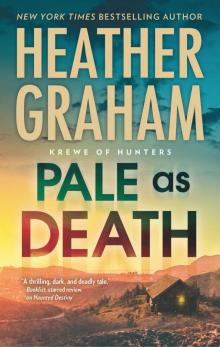 Pale as Death
Pale as Death Phantom Evil
Phantom Evil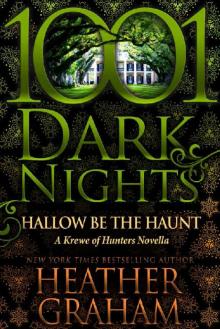 Hallow Be the Haunt
Hallow Be the Haunt Night of the Wolves
Night of the Wolves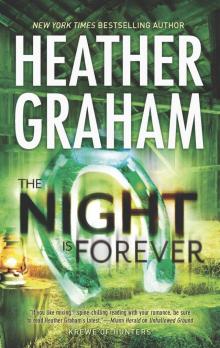 The Night Is Forever
The Night Is Forever Golden Surrender
Golden Surrender Kiss of Darkness
Kiss of Darkness Beneath a Blood Red Moon
Beneath a Blood Red Moon A Dangerous Game
A Dangerous Game Ghost Shadow
Ghost Shadow Long, Lean, and Lethal
Long, Lean, and Lethal Fade to Black
Fade to Black The Rising
The Rising And One Wore Gray
And One Wore Gray Rebel
Rebel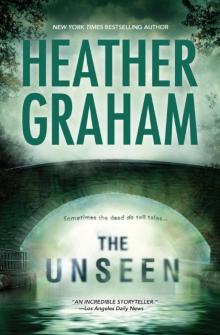 The Unseen
The Unseen The Night Is Watching
The Night Is Watching The Evil Inside
The Evil Inside The Unspoken
The Unspoken The Night Is Alive
The Night Is Alive The Unholy
The Unholy Nightwalker
Nightwalker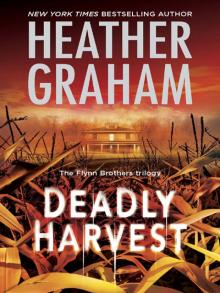 Deadly Harvest
Deadly Harvest An Angel for Christmas
An Angel for Christmas A Pirate's Pleasure
A Pirate's Pleasure American Drifter
American Drifter Realm of Shadows
Realm of Shadows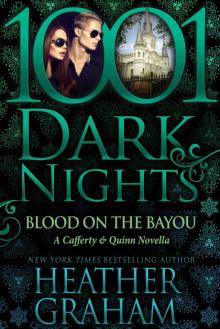 Blood on the Bayou
Blood on the Bayou Sacred Evil
Sacred Evil Dying to Have Her
Dying to Have Her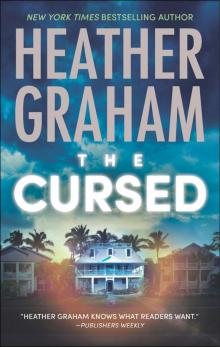 The Cursed
The Cursed Captive
Captive Hurricane Bay
Hurricane Bay Drop Dead Gorgeous
Drop Dead Gorgeous Ghost Memories
Ghost Memories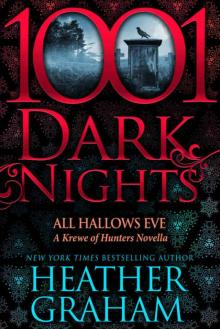 All Hallows Eve
All Hallows Eve Dying Breath
Dying Breath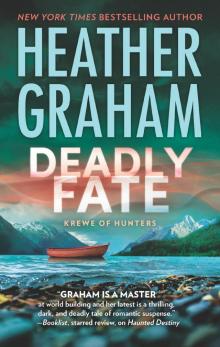 Deadly Fate
Deadly Fate The Dead Room
The Dead Room Lord of the Wolves
Lord of the Wolves Ghost Night
Ghost Night Ghost Walk
Ghost Walk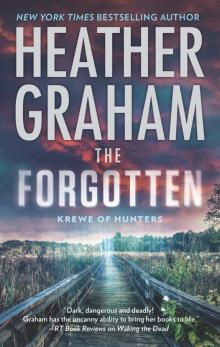 The Forgotten
The Forgotten Unhallowed Ground
Unhallowed Ground One Wore Blue
One Wore Blue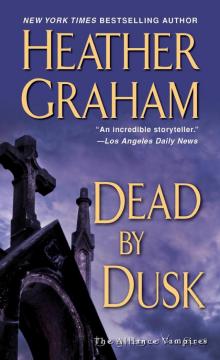 Dead By Dusk
Dead By Dusk Night of the Blackbird
Night of the Blackbird The Dead Play On
The Dead Play On Bride of the Night
Bride of the Night Wicked Deeds
Wicked Deeds The Forbidden
The Forbidden Triumph
Triumph Out of the Darkness
Out of the Darkness Love Not a Rebel
Love Not a Rebel The Last Noel
The Last Noel Tall, Dark, and Deadly
Tall, Dark, and Deadly The Death Dealer
The Death Dealer Dead on the Dance Floor
Dead on the Dance Floor Law and Disorder
Law and Disorder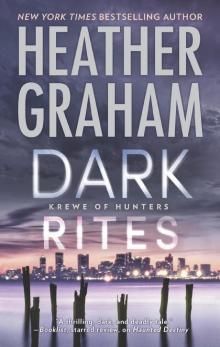 Dark Rites
Dark Rites New Year's Eve
New Year's Eve Hostage At Crystal Manor
Hostage At Crystal Manor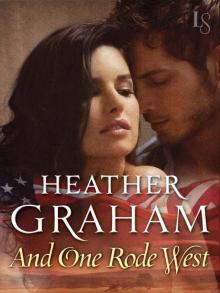 And One Rode West
And One Rode West Home in Time for Christmas
Home in Time for Christmas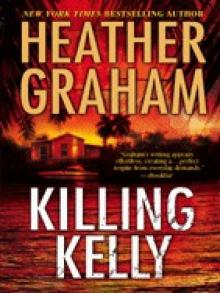 Killing Kelly
Killing Kelly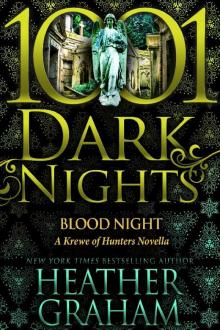 Blood Night
Blood Night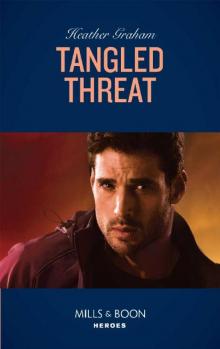 Tangled Threat (Mills & Boon Heroes)
Tangled Threat (Mills & Boon Heroes)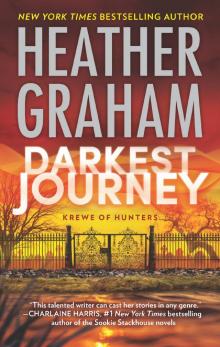 Darkest Journey
Darkest Journey Glory
Glory Deadly Touch
Deadly Touch An Unexpected Guest
An Unexpected Guest Night of the Vampires
Night of the Vampires Seize the Wind
Seize the Wind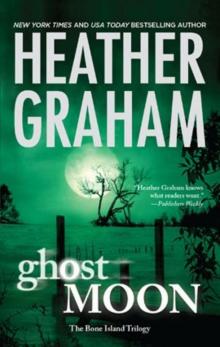 Ghost Moon
Ghost Moon The Vision
The Vision Dreaming Death
Dreaming Death Conspiracy to Murder
Conspiracy to Murder Horror-Ween (Krewe of Hunters)
Horror-Ween (Krewe of Hunters)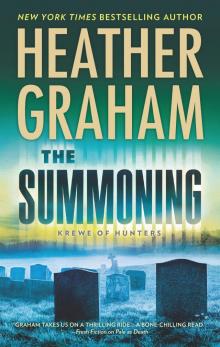 The Summoning
The Summoning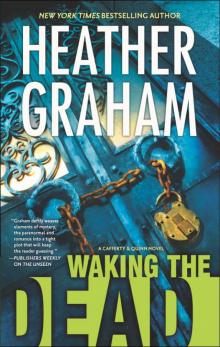 Waking the Dead
Waking the Dead Danger in Numbers
Danger in Numbers The Hidden
The Hidden Sweet Savage Eden
Sweet Savage Eden Tangled Threat ; Suspicious
Tangled Threat ; Suspicious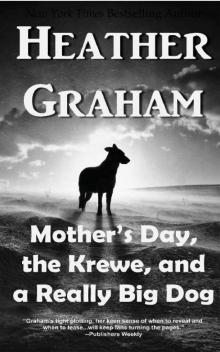 Mother's Day, the Krewe, and a Really Big Dog
Mother's Day, the Krewe, and a Really Big Dog Picture Me Dead
Picture Me Dead The Killing Edge
The Killing Edge St. Patrick's Day
St. Patrick's Day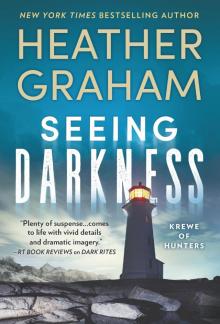 Seeing Darkness
Seeing Darkness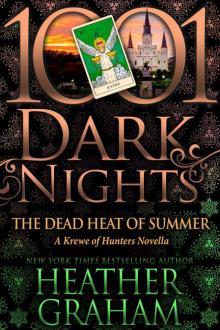 The Dead Heat of Summer: A Krewe of Hunters Novella
The Dead Heat of Summer: A Krewe of Hunters Novella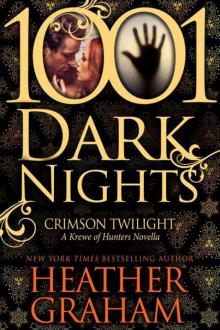 Crimson Twilight
Crimson Twilight Haunted Destiny
Haunted Destiny Devil's Mistress
Devil's Mistress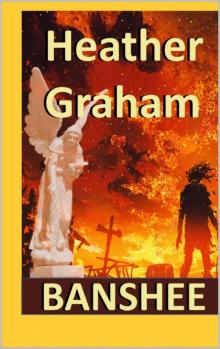 Banshee
Banshee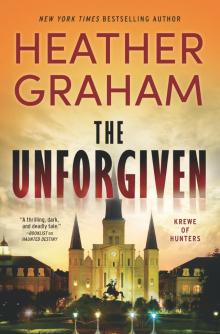 The Unforgiven
The Unforgiven The Final Deception
The Final Deception A Horribly Haunted Halloween
A Horribly Haunted Halloween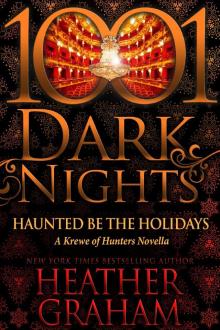 Haunted Be the Holidays
Haunted Be the Holidays Deadly Gift
Deadly Gift Easter, the Krewe and Another Large White Rabbit
Easter, the Krewe and Another Large White Rabbit Haunted
Haunted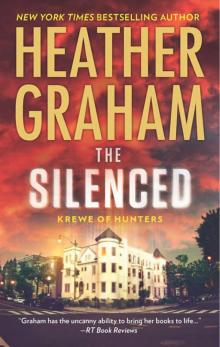 The Silenced
The Silenced Let the Dead Sleep
Let the Dead Sleep Christmas, the Krewe, and Kenneth
Christmas, the Krewe, and Kenneth Big Easy Evil
Big Easy Evil Sinister Intentions & Confiscated Conception
Sinister Intentions & Confiscated Conception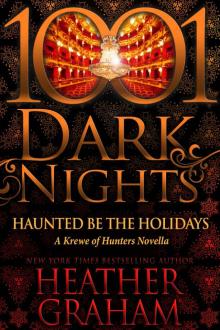 Haunted Be the Holidays: A Krewe of Hunters Novella
Haunted Be the Holidays: A Krewe of Hunters Novella Blood Red
Blood Red A Perilous Eden
A Perilous Eden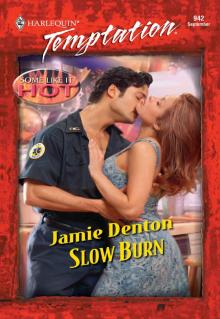 Slow Burn
Slow Burn Strangers In Paradise
Strangers In Paradise Bitter Reckoning
Bitter Reckoning Krewe of Hunters, Volume 1: Phantom Evil ; Heart of Evil ; Sacred Evil ; The Evil Inside
Krewe of Hunters, Volume 1: Phantom Evil ; Heart of Evil ; Sacred Evil ; The Evil Inside Do You Fear What I Fear?
Do You Fear What I Fear? The Face in the Window
The Face in the Window Krewe of Hunters, Volume 3: The Night Is WatchingThe Night Is AliveThe Night Is Forever
Krewe of Hunters, Volume 3: The Night Is WatchingThe Night Is AliveThe Night Is Forever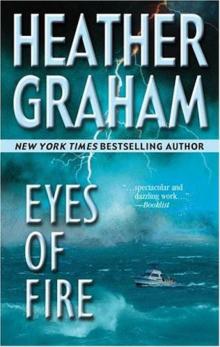 Eyes of Fire
Eyes of Fire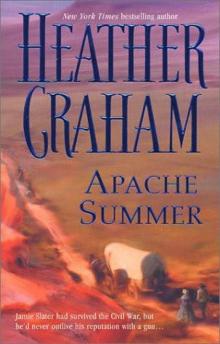 Apache Summer sb-3
Apache Summer sb-3 Sensuous Angel
Sensuous Angel In the Dark
In the Dark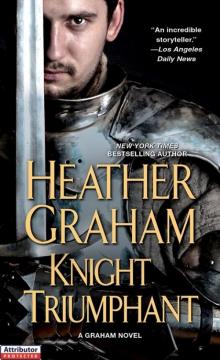 Knight Triumphant
Knight Triumphant Hours to Cherish
Hours to Cherish Tender Deception
Tender Deception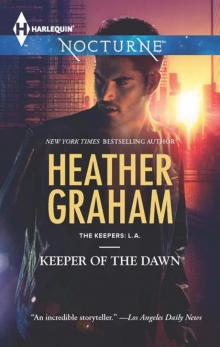 Keeper of the Dawn tkl-4
Keeper of the Dawn tkl-4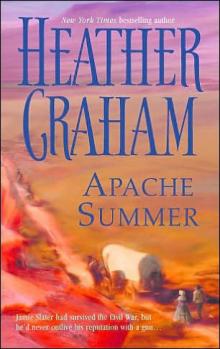 Apache Summer
Apache Summer Between Roc and a Hard Place
Between Roc and a Hard Place Echoes of Evil
Echoes of Evil The Game of Love
The Game of Love Sacred Evil (Krewe of Hunters)
Sacred Evil (Krewe of Hunters) Bougainvillea
Bougainvillea Tender Taming
Tender Taming Keeper of the Night (The Keepers: L.A.)
Keeper of the Night (The Keepers: L.A.)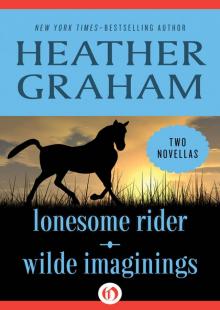 Lonesome Rider and Wilde Imaginings
Lonesome Rider and Wilde Imaginings Lucia in Love
Lucia in Love The Gatekeeper
The Gatekeeper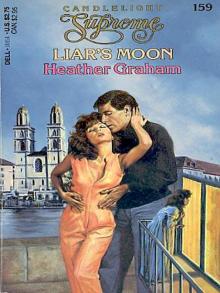 Liar's Moon
Liar's Moon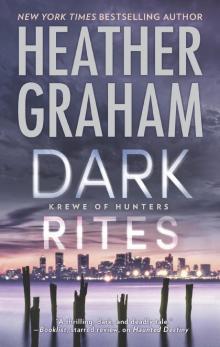 Dark Rites--A Paranormal Romance Novel
Dark Rites--A Paranormal Romance Novel A Season for Love
A Season for Love Krewe of Hunters, Volume 6: Haunted Destiny ; Deadly Fate ; Darkest Journey
Krewe of Hunters, Volume 6: Haunted Destiny ; Deadly Fate ; Darkest Journey Keeper of the Dawn (The Keepers: L.A.)
Keeper of the Dawn (The Keepers: L.A.)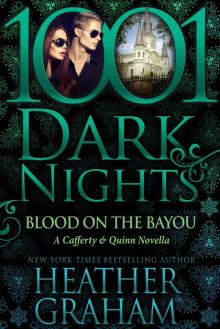 Blood on the Bayou: A Cafferty & Quinn Novella
Blood on the Bayou: A Cafferty & Quinn Novella Double Entendre
Double Entendre A Perfect Obsession--A Novel of Romantic Suspense
A Perfect Obsession--A Novel of Romantic Suspense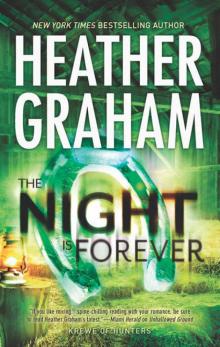 The Night Is Forever koh-11
The Night Is Forever koh-11 The Di Medici Bride
The Di Medici Bride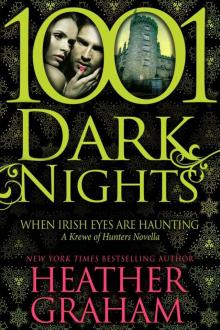 When Irish Eyes Are Haunting: A Krewe of Hunters Novella
When Irish Eyes Are Haunting: A Krewe of Hunters Novella The Keepers: Christmas in Salem: Do You Fear What I Fear?The Fright Before ChristmasUnholy NightStalking in a Winter Wonderland (Harlequin Nocturne)
The Keepers: Christmas in Salem: Do You Fear What I Fear?The Fright Before ChristmasUnholy NightStalking in a Winter Wonderland (Harlequin Nocturne) Never Fear
Never Fear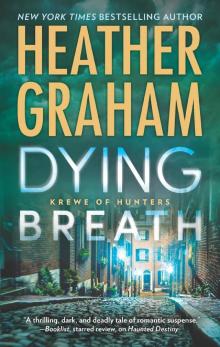 Dying Breath--A Heart-Stopping Novel of Paranormal Romantic Suspense
Dying Breath--A Heart-Stopping Novel of Paranormal Romantic Suspense If Looks Could Kill
If Looks Could Kill This Rough Magic
This Rough Magic Heather Graham's Christmas Treasures
Heather Graham's Christmas Treasures Hatfield and McCoy
Hatfield and McCoy The Trouble with Andrew
The Trouble with Andrew Never Fear - The Tarot: Do You Really Want To Know?
Never Fear - The Tarot: Do You Really Want To Know?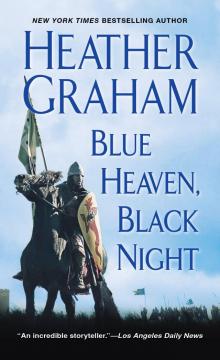 Blue Heaven, Black Night
Blue Heaven, Black Night Forbidden Fire
Forbidden Fire Come the Morning
Come the Morning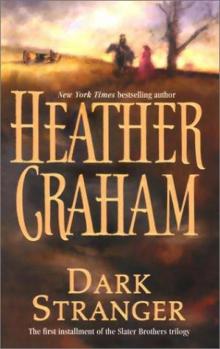 Dark Stranger sb-4
Dark Stranger sb-4 Lie Down in Roses
Lie Down in Roses Red Midnight
Red Midnight Krewe of Hunters Series, Volume 5
Krewe of Hunters Series, Volume 5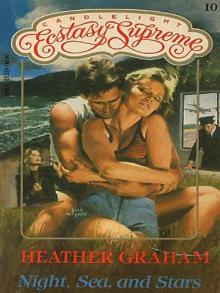 Night, Sea, And Stars
Night, Sea, And Stars Snowfire
Snowfire Quiet Walks the Tiger
Quiet Walks the Tiger Mistress of Magic
Mistress of Magic For All of Her Life
For All of Her Life Runaway
Runaway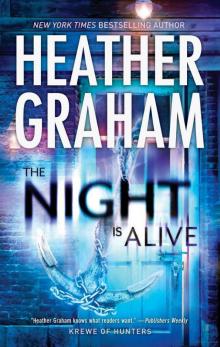 The Night Is Alive koh-10
The Night Is Alive koh-10 The Evil Inside (Krewe of Hunters)
The Evil Inside (Krewe of Hunters)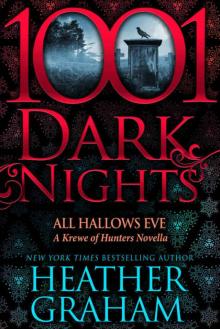 All Hallows Eve: A Krewe of Hunters Novella (1001 Dark Nights)
All Hallows Eve: A Krewe of Hunters Novella (1001 Dark Nights) Tomorrow the Glory
Tomorrow the Glory Ondine
Ondine Angel of Mercy & Standoff at Mustang Ridge
Angel of Mercy & Standoff at Mustang Ridge Bride of the Tiger
Bride of the Tiger When Next We Love
When Next We Love Heather Graham Krewe of Hunters Series, Volume 4
Heather Graham Krewe of Hunters Series, Volume 4 A Season of Miracles
A Season of Miracles Realm of Shadows (Vampire Alliance)
Realm of Shadows (Vampire Alliance) When We Touch
When We Touch Serena's Magic
Serena's Magic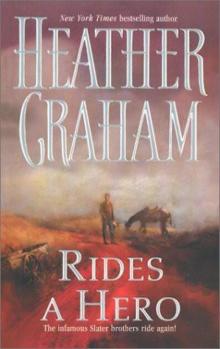 Rides a Hero sb-2
Rides a Hero sb-2 All in the Family
All in the Family Handful of Dreams
Handful of Dreams A Stranger in the Hamptons
A Stranger in the Hamptons Krewe of Hunters, Volume 2: The Unseen ; The Unholy ; The Unspoken ; The Uninvited
Krewe of Hunters, Volume 2: The Unseen ; The Unholy ; The Unspoken ; The Uninvited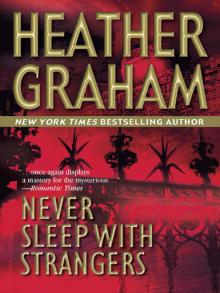 Never Sleep With Strangers
Never Sleep With Strangers Eden's Spell
Eden's Spell A Magical Christmas
A Magical Christmas Forever My Love
Forever My Love King of the Castle
King of the Castle Night Moves (60th Anniversary)
Night Moves (60th Anniversary) The Island
The Island Borrowed Angel
Borrowed Angel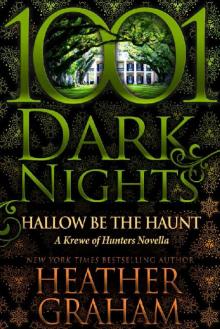 Hallow Be the Haunt: A Krewe of Hunters Novella
Hallow Be the Haunt: A Krewe of Hunters Novella Why I Love New Orleans
Why I Love New Orleans The Last Cavalier
The Last Cavalier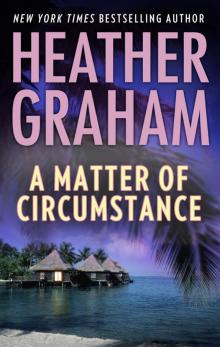 A Matter of Circumstance
A Matter of Circumstance Heather Graham's Haunted Treasures
Heather Graham's Haunted Treasures Tempestuous Eden
Tempestuous Eden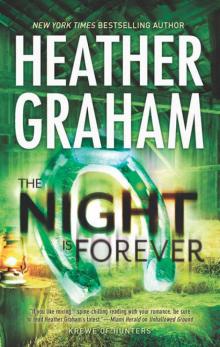 Krewe 11 - The Night Is Forever
Krewe 11 - The Night Is Forever